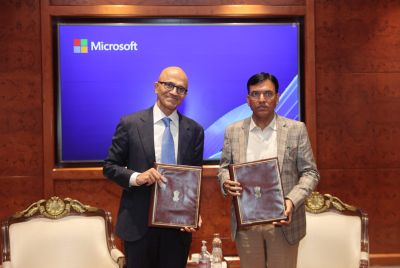Is Apple Stock a Ticking Bomb? $1.4 Billion Tariff Hammer on Siri 2026 Debut, China Revenue Recovery
Apple stock risks: £1.12bn tariff, Siri 2026 delay, China slump.

At a glance, Apple's Q3 2025 earnings call painted a rosy picture, with CEO Tim Cook championing record-breaking services revenue. But beneath the surface, a £1.12 billion ($1.4 billion) tariff hammer is poised to fall, and the company's ambitious 'Apple Intelligence' strategy is facing significant headwinds.
Is the world's most valuable company a ticking time bomb for investors?
Why a £1.12 Billion Tariff Hit Looms Over the Holiday Quarter
Apple's CFO, Luca Maestri, delivered the starkest warning, projecting a massive £1.12 billion ($1.4 billion) impact from tariff-related costs in the crucial holiday quarter. This quarter is typically Apple's biggest of the year.
The guidance included this hit while still projecting total revenue to grow 10 to 12% and iPhone revenue to grow double digits. However, the gross margin, forecast between 47% and 48%, directly includes this £1.12 billion ($1.4 billion) burden.
Tim Cook confirmed this projection is based on 'what we know right now' and assumes a 'stable environment'. This figure already accounts for the recent reduction in the Chinese tariff from 20%, down to 10%.
Can a 'Strong' iPhone 17 Overcome China's Revenue Slump?
The tariff news is compounded by uncertainty in Greater China, which saw a 4% year-over-year revenue decline. Cook blamed 'supply constraint' for the drop, insisting he 'couldn't be more pleased' with the iPhone 17's reception in the region.
Despite the current slump, the CEO boldly predicted a return to growth in China for the fiscal first quarter. He also praised the 'incredibly strong' iPhone 17 lineup, calling the new iPhone Air 'so thin and so light in your hand, it feels like it's going to fly away'.
Yet, when analysts asked Cook to clarify the demand mix for the new iPhone 17 models, he called it 'too early to call'. He stated, 'we have constraints on both sides of the ledger, on the top and on the entry'.
$AAPL Q4 2025 📱
— Quartr (@Quartr_App) October 30, 2025
"Today, Apple is very proud to report a September quarter revenue record of $102.5 billion" - Tim Cook
Revenue +8%
*iPhone +6%
*Mac +13%
*iPad +0%
*Wearables, Home. +0%
*Services +15%
*Americas +6%
*Europe +15%
*Greater China -4%
*Japan +12%
*Rest of Asia… pic.twitter.com/rUJJnKmq6W
Why You Will Be Waiting Until 2026 for the 'New' Siri
Apple's other major gamble, its 'Apple Intelligence' revamp, is also showing signs of strain. Cook confirmed that the more personalised, revamped Siri is delayed and now expected to launch in 2026.
This is the 'new Siri' meant to anchor Apple Intelligence, featuring in-app actions, personal context, and on-screen awareness. While Cook stated Apple is 'making good progress', this follows a rare public delay.
This delay is not happening in a vacuum. Bloomberg previously reported that engineers were struggling with Siri's performance, and key AI team leader Ke Yang is reportedly leaving for Meta. The perception that Apple is struggling to keep pace with its 'lofty ambitions' in AI is growing.
The new version of Siri is still scheduled for release in 2026
— AppleDrop (@TheAppleDrop) October 30, 2025
During Apple's financial results presentation, Tim Cook confirmed that the major overhaul of Siri is still on track for release in 2026.
First announced at WWDC 2024 and then postponed, this redesigned version of… pic.twitter.com/8nNNoFcF14
Cook 'Dodges' Key Questions While Pledging More AI Cash
The AI struggles persist even as Apple's CFO confirmed that the 'vast majority' of operating expenses are driven by R&D, with increasing investments in AI. Cook noted Apple is 'open to pursuing M&A' to advance its AI roadmap, while also leveraging a 'hybrid model' of private cloud and third-party compute.
This expensive R&D push contrasts with Cook's evasiveness on other key metrics. When pressed for details on its services growth, which includes a reported £16 billion ($20 billion) search deal with Google, Cook was evasive.
An analyst asked for a split of Apple's internal advertising and licensing. 'I'm dodging the question intentionally, because we don't split it at that level', Cook replied. This opaqueness, combined with massive tariff hits and delayed flagship software, paints a complex picture for investors evaluating Apple's stock.
The company is also continuing its £480 billion ($600 billion) US investment in manufacturing, silicon engineering, and AI, but whether this investment can pay off before these risks fully materialise remains the key question.
© Copyright IBTimes 2025. All rights reserved.





















